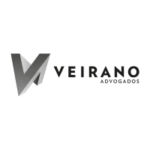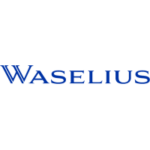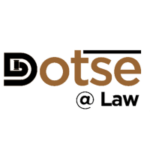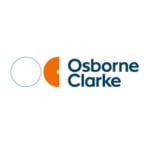-
Are there specific legal requirements or preferences regarding the choice of entity and/or equity structure for early-stage businesses that are seeking venture capital funding in the jurisdiction?
In France, early-stage companies seeking venture capital financing most commonly adopt the form of a Société par actions simplifiée (SAS). This preference is not imposed by law but is widely accepted in practice due to the SAS’s flexibility, particularly in terms of governance and capital structure.
The SAS allows for tailor-made shareholder arrangements, including free allocation of decision-making powers and customized transfer restrictions. It also facilitates the issuance of preferred shares or convertible instruments-mechanisms frequently required by venture capital investors.
While other corporate forms are legally available, the SAS is typically preferred by investors for its adaptability and its capacity to accommodate complex investment terms.
-
What are the principal legal documents for a venture capital equity investment in the jurisdiction and are any of them publicly filed or otherwise available to the public?
The principal legal documents for venture capital equity investments in France are the following:
- Term sheet: This preliminary, usually non-binding document sets out the key terms and conditions of the proposed investment, including valuation, structure of the investment, governance rights, and exit provisions. It serves as a basis for drafting the definitive agreements and provides a framework for the negotiation process. Although not legally binding in most respects, the term sheet may include binding clauses on exclusivity, confidentiality, and costs.
- Investment Agreement: This agreement sets out the terms and conditions of the investment. It typically includes the subscription or acquisition of shares, conditions precedent, and representations and warranties provided by the company and, where applicable, its founders or management. In certain cases, and especially in situations where no investment agreement is necessary (e.g., Seed financings) a separate representations and warranties agreement may be entered into detailing the scope and limitations of such representations and providing remedies in case of breach.
- Shareholders’ Agreement: This agreement governs the relationship between shareholders. It includes essential investors’ protections such as governance rights, information rights, anti-dilution provisions, and exit rights (e.g., tag-along and drag-along rights). Simplified shareholders’ agreements may be entered into with minority shareholders or holders of equity-based instruments (such as stock options or convertible securities), reflecting a limited set of aligned rights.
- Revised by-laws (“Statuts“): The by-laws are amended to reflect the share capital increase and to incorporate the rights attached to preferred shares or other specific instruments issued as part of the transaction.
- Corporate documentation: Shareholders’ and, where required, board resolutions are adopted to formally approve the investment and related corporate actions. These typically include the issuance of new shares, the creation of new share classes (such as preferred shares), amendments to the by-laws, and any changes to the company’s governance structure. In transactions involving preferred shares or other complex instruments (such as warrants or convertible securities), the resolutions also define the specific terms and conditions of the issuance.
Among these documents, the revised by-laws and shareholders’ resolutions are publicly filed with the Trade and Companies Registry (“registre du commerce et des sociétés“) and are available online. In contrast, the investment agreement and the shareholders’ agreement are private documents and are not subject to public disclosure.
While certain investors’ rights remain confidential, some may be replicated in the by-laws to ensure maximum legal enforceability.
-
Is there a venture capital industry body in the jurisdiction and, if so, does it provide template investment documents? If so, how common is it to deviate from such templates and does this evolve as companies move from seed to larger rounds?
France does not have a single official industry body that provides binding standardised investment documentation for venture capital transactions. However, market practices are well developed and widely accepted, particularly among experienced investors and advisors.
Several private initiatives have contributed to the development of model documentation and market guidelines. Notably, “The Galion Project”, a French think tank led by entrepreneurs and investors, offers publicly available template investment documents, guidelines, and best practice analysis tailored to startups and early-stage investors (www.thegalionproject.com).
While these documents are not legally binding or officially endorsed by a governmental or regulatory body, they are commonly used as a starting point, particularly in seed and early-stage financing rounds. Deviations from such templates become more frequent as transactions increase in complexity. In later-stage rounds, documentation is typically tailored to the specific needs of the parties and the deal structure, often incorporating more sophisticated investor rights and governance provisions.
-
Are there any general merger control, anti-trust/competition and/or foreign direct investment regimes applicable to venture capital investments in the jurisdiction?
Venture capital investments in France are generally not subject to merger control, unless they involve a significant acquisition resulting in a change of control or a material impact on market concentration. In practice, early-stage and growth-stage venture capital transactions rarely meet the turnover thresholds required for mandatory notification to the French Competition Authority (“Autorité de la concurrence“).
Outside of merger control, general antitrust and competition law principles continue to apply. Agreements between investors and portfolio companies must not contain anti-competitive restrictions.
In addition, foreign investors acquiring stakes in French startups or scale-ups may be subject to foreign direct investment regulation. Under French law, non-EU/EEA investors must obtain prior authorization from the Ministry of the Economy before acquiring more than 25% of the voting rights in a company operating in a strategic sector. Covered sectors include defence, cybersecurity, space, energy, telecommunications, and public health. Failure to obtain prior approval when required may result in significant penalties, including monetary fines and potential cancelation of the investment.
-
What is the process, and internal approvals needed, for a company issuing shares to investors in the jurisdiction and are there any related taxes or notary (or other fees) payable?
In France, the issuance of new shares to investors must follow a formal legal process codified in the French commercial code, involving internal corporate approvals and mandatory regulatory filings. The specific procedure may vary depending on the legal form of the company.
The company’s management body -typically the president in an SAS (“société par actions simplifiée“) or the board of directors in an SA (“société anonyme“)- must first prepare a report. This report must state the reasons for the capital increase and its expected impact on existing shareholders. In certain cases, the statutory auditor of the company -or an ad hoc statutory auditor- must also prepare a report on the contemplated share capital increase. The reports are then submitted to the shareholders for approval, together with proposed corporate resolutions and amendments to the by-laws (“statuts“).
Where specific governance bodies exist (such as a supervisory board or strategic committee), their prior approval may be required before the transaction is presented to the shareholders.
Following shareholder approval, investors subscribe to the new shares by signing a subscription form (“bulletin de souscription“) and transferring the corresponding funds to the company’s bank account. The capital increase is then formally recorded by a decision of the president (in an SAS) or the board of directors (in an SA) and the by-laws officially amended to reflect the new capital structure.
After completion, the company must register the capital increase with the Trade and Companies Registry, including the filing of the minutes of the shareholders’ resolutions and updated by-laws reflecting the revised share capital. As to costs, the filing fees typically ranges from €300 to €400.
The corporate approval process is generally rather straightforward in comparison to the structuring of the transaction, which may be complex depending on the terms negotiated. The more complex aspects typically arise in the negotiation and drafting of the investment agreement, the shareholders’ agreement, and, where applicable, the terms and conditions of preferred shares or other complex securities.
-
How prevalent is participation from investors that are not venture capital funds, including angel investors, family offices, high net worth individuals, and corporate venture capital?
In France, venture capital investments are not exclusively driven by traditional VC funds. The French venture capital landscape is marked by a diverse mix of investors. This diversity contributes to the strength of the ecosystem, offering startups various sources of funding and different types of support throughout their development. A wide range of other investor profiles actively participate in the financing of startups and scale-ups, particularly at the early and growth stages.
- “Love money”, funds raised from friends and family, is a typical source of pre-seed financing for early-stage entrepreneurs.
- Angel investors, including business angels acting individually or through structured networks, play a significant role in seed-stage financing. These investors often provide not only capital, but also strategic guidance and access to professional networks.
- Family offices and high-net-worth individuals are also active participants in venture transactions, especially in later seed or Series A rounds. Their involvement is often motivated by portfolio diversification, long-term investment strategies, and direct exposure to innovation.
- Corporate venture capital (CVC) is increasingly prominent in the French ecosystem. Corporates invest either directly or through dedicated venture divisions, often with strategic objectives, such as access to innovation, technology partnerships, or future acquisition opportunities. These investments are particularly common in sectors such as fintech, mobility, energy, and healthcare.
- Public funds (such as Bpifrance, the French public investment bank) and regional funds backed by local authorities, are also key players in the French venture ecosystem, especially in early-stage and growth rounds.
-
What is the typical investment period for a venture capital fund in the jurisdiction?
The investment period for venture capital funds in France varies depending on factors such as the fund’s strategy, sector focus, and market conditions. However, it generally ranges between 3 to 7 years.
-
What are the key investment terms which a venture investor looks for in the jurisdiction including representations and warranties, class of share, board representation (and observers), voting and other control rights, redemption rights, anti-dilution protection and information rights?
Venture capital investors in France typically negotiate a set of key contractual and corporate rights to protect their investment, manage risk, and retain strategic influence over the portfolio company. These terms are formalized in the investment agreement, the shareholders’ agreement, and the company’s by-laws. While founders generally remain in charge of day-to-day operations, investors seek various rights to ensure oversight and protect the value of their investment.
The key investment terms commonly include the following:
- Representations and warranties: Included in the investment agreement or in a separate agreement, these typically cover a broad range of matters and provide indemnification to be paid in cash or in share of the company.
- Classes of shares and preferred rights: In most venture capital transactions, investors subscribe to preferred shares, which grant enhanced rights such as liquidation preferences, anti-dilution protections, and information and audit rights. There are two main structuring options for preferred rights in France:
- Statutory preferred shares: these rights are formally embedded in the company’s by-laws and are also mirrored in the shareholders’ agreement. However, issuing statutory preferred shares involves a burdensome and more expensive process, and these statutory preferred shares do not qualify for certain French tax-advantaged schemes (e.g., Plan d’Épargne en Actions), limiting their appeal to some investors (mainly business angels).
- Ordinary shares with preferred rights: investors’ rights are granted exclusively through the shareholders’ agreement, while the shares themselves are issued as ordinary shares. This method has become increasingly favored in the French market, even in larger fundraising rounds.
- Contractual rights: the shareholders’ agreement usually provide protective rights to the investors, such as anti-dilution, pre-emption rights on future issuances of securities; right of first refusal on share transfers, or tag-along and drag-along rights.
- Corporate governance and control rights: Investors often negotiate rights to ensure influence over strategic decisions. These may typically include the right to appoint a board member and/or observer, veto rights (also called reserved matters) exercised mostly at board level for key actions, convening rights to call board or shareholder meetings, or sometimes dismissal rights, allowing investors above a certain ownership threshold to remove company officers, with or without cause.
- Information rights and audit: these include the right to receive regular financial reports, business updates, and, in some cases, to conduct audits at the company’s expense. Investors may also request access to strategic plans, budgets, or other material documentation.
These terms are tailored to the specific context of each deal, taking into account the maturity of the company, the bargaining power of the parties, and market standards in France.
-
What are the key features of the liability regime (e.g. monetary damages vs. compensatory capital increase) that apply to venture capital investments in the jurisdiction?
Venture capital investments in France generally feature structured liability regime, balancing monetary damages and compensatory mechanisms.
Founders (typically in early-stage transactions) and/or the company provide (most of the time) broad representations covering key aspects of the business (such as corporate matters, shareholdings, intellectual property, employment, tax, insurance, financial statements, financing, and contracts). These warranties are generally subject to certain limitations, including disclosures, time limits (usually between 12 and 24 months, except for tax/social security matters and fundamental warranties, which may last until statute of limitation), financial limits (de minimis around 0.1% of the investment, threshold circa 1% of the investment and capped at the invested amount). If founders are personally liable, their individual cap is often limited to 1-2 times their annual salary. Compensation may be paid either in cash or in shares (typically through a capital increase by set-off), generally at the warrantor’s discretion.
In addition, investors seek for compensatory adjustments on the subscription price of their shares by requesting downside protections, such as (also see below question #14):
- Ratchet rights: where they are protected against financing rounds at a lower valuation (generally exercisable within 2 to 5 years after closing). Investors in such case are entitled to additional shares (for free), reducing the effective price per share of their investment. This mechanism is typically implemented through warrants attached to shares. Ratchet rights often use a weighted average formula.
- Liquidation preference: where investors have a priority in recovering their investment during liquidation, sale, or merger of the company. This preference is generally structured as 1x non-participating liquidation preference (where investors receive either their pro-rata share of proceeds or their initial investment amount). French market practice ensures that ordinary shareholders are not deprived of financial rights (even if proceeds fall below the total investment amount) and a minimal payout (e.g., nominal share value or a number between 1 to 10% of proceeds) is allocated before liquidation preferences.
-
How common are arrangement/ monitoring fees for investors in the jurisdiction?
In the context of venture capital transactions in France, arrangement fees are not standard market practice and are generally not charged by investors. They may occasionally arise in later-stage or complex financing rounds, particularly where the investor provides structuring support, but they remain exceptional. Note however that legal and due diligence costs (in a limited amount) are generally borne by the company rather than by investors.
Monitoring fees are also uncommon, particularly in early-stage investments. They may be applicable in certain growth-stage transactions where investors assume an active governance role or provides operational support, typically structured as a limited annual fee or reimbursement of specific costs. However, such fees are often subject to negotiation and may be resisted by founders and co-investors.
Overall, French venture capital investors typically generate returns through capital appreciation and management fees charged to their LPs, rather than imposing fees directly on portfolio companies.
-
Are founders and senior management typically subject to restrictive covenants following ceasing to be an employee and/or shareholder and, if so, what is their general scope and duration?
Founders and senior management are commonly subject to post-termination restrictive covenants, which typically include:
- non-compete clauses: prohibit working with competitors, starting a competing business or investing in competing companies.
- non-solicitation of employees: restrict hiring or poaching former colleagues.
- non-solicitation of clients: less frequently used but sometimes included to prohibit poaching or doing business with the company’s clients.
- confidentiality clauses.
These covenants are commonly negotiated (founders often seek carve-outs or limitations) and included in employment agreements or shareholders’ agreements. Their scope and enforceability are subject to French legal standards. Courts may strike down, limit, or invalidate clauses deemed overly broad or disproportionate, so restrictions must be narrowly tailored.
In particular, non-compete provisions applicable to employees must meet the following conditions to be enforceable: (i) limited in time and geographical scope; (ii) proportionate to the employee’s position and justified by the company’s legitimate business interests; (iii) accompanied by financial compensation, typically ranging from 30% to 50% of the employee’s average gross salary during the restriction period. This financial compensation is not legally required for legal representatives or founders when restrictions are tied to a shareholding or investment context, but it is often included in practice.
In terms of duration, non-compete and non-solicitation clauses generally range from 6 to 24 months (rarely more). The geographical scope is usually limited to France, though broader restrictions (e.g., at an international level) may be enforceable if justified by the company’s business footprint.
Contracts may allow the company/employer to waive the non-compete obligation post-termination, provided this option is expressly stated. In case of breach, consequences can include the termination of compensation, reimbursement of any amount already paid, and potential liability for damages.
-
How are employees typically incentivised in venture capital backed companies (e.g. share options or other equity-based incentives)?
Employees in France are commonly incentivized through equity-based compensation schemes, some of which benefit from favourable tax and social security treatment. The most frequently used instruments include founders’ warrants (so-called BSPCEs or “Bons de Souscription de Parts de Créateur d’Entreprise“), stock options, warrants (so-called BSAs or “Bons de Souscription d’Actions“), and free shares (“actions gratuities“).
BSPCEs, BSAs, and stock options grant beneficiaries the right to acquire shares at a pre-determined exercise price, typically based on the fair market value of the shares at the date of grant. Free shares, by contrast, are granted at no cost to the beneficiary, but are only definitively acquired after a minimum vesting period of one year, with transfer restrictions applying thereafter for at least one additional year.
Among these, BSPCEs are the most widely used in French startups and VC-backed companies due to their favourable tax regime and the fact that they can be issued with no cost for the company. Gains realised upon the sale of shares acquired via BSPCEs are generally taxed at reduced rates, and no employer social contributions are due at grant or exercise. This makes them particularly attractive for both employers and employees.
Stock options and BSAs are less commonly used due to their less favourable and more complex tax and social treatment, particularly when granted to employees. Free shares, while available, are often avoided by startups due to the requirement to pay an employer contribution (equal to 30% of the fair market value of the shares upon final acquisition), following the mandatory vesting/acquisition period.
In limited cases where equity-based incentives are not feasible (due to legal, regulatory, or structural constraints, e.g., employees with “portage salarial“) companies may consider alternative mechanisms such as cash bonus plans or phantom share schemes, which aim to replicate the financial benefits of equity participation without the issuance of actual shares.
-
What are the most commonly used vesting/good and bad leaver provisions that apply to founders/ senior management in venture capital backed companies?
Equity incentive plans in France typically follow a four-year vesting schedule, with a one-year cliff (meaning 25% of the allocated equity vests after the first year, and the remaining 75% vests in monthly or quarterly instalments over the following three years). In some plans, vesting may be subject to the achievement of performance-based milestones, and accelerated vesting may be triggered by specific events, such as a sale of the company or an initial public offering (IPO). If the beneficiary leaves the company before full vesting, unvested rights are forfeited with no compensation.
Upon departure, beneficiaries are generally required to sell 100% of their vested securities, with the transfer price determined based on their leaver status (classified as a “good leaver”, “bad leaver”, or in some cases, “medium leaver”).
A good leaver is typically someone whose departure is due to considered acceptable circumstances, such as retirement, long-term illness or death (of the beneficiary or a close family member). In such cases, the other (active) founders and investors (and sometime the company itself in certain circumstances in line with its best corporate interest) may buy back the vested shares at fair market value or under favorable terms.
A bad leaver is generally a departure in adverse circumstances, such as gross misconduct (“faute lourde“) and sometime wilful misconduct (“faute grave“), breach of contractual obligations, or resignation without cause. In these cases, vested shares may be repurchased at a significant discount, sometimes at par or nominal value.
Some agreements also define an intermediate category of “medium leaver”, covering all other situations including termination for cause but without gross or wilful misconduct, with corresponding pricing terms set between those applicable to good and bad leavers or at a discounted fair market value.
These provisions are usually set out in the shareholders’ agreements (“pactes d’associés“), a contractual undertaking, the equity grant documentation, or the employment agreement. The terms and conditions of the leaver provisions are subject to complex and extensive negotiations and differ for each company.
-
What have been the main areas of negotiation between investors, founders, and the company in the investment documentation, over the last 24 months?
Over the past 24 months, negotiations between investors, founders, and companies have largely revolved around several key areas:
- Company valuation and equity ownership: with the decline in tech sector valuations since 2022, investors have generally sought lower valuations and stronger downside protections. As a result, discussions have focused on finding a fair valuation that balances founders’ dilution concerns with investors’ expectations for meaningful ownership.
- Governance: investors typically negotiate for (i) board seats and/or observer rights to influence important decisions, but also (ii) veto rights over critical decisions (e.g., fundraising, strategic transactions, hiring or dismissal of C-level employees, or budget approvals). Founders often seek to limit investors’ control to maintain autonomy. Information and audits rights are also key for the investors. Access to information and audit rights are also crucial points for investors.
- Liquidation preference (see question #9): liquidation preference provisions (most commonly structured as a 1x non-participating preference) are a central point of negotiation. These mechanisms ensure investors recover their capital in exit scenarios that may not reflect favourable terms.
- Drag-along rights: to mitigate the risk of being forced into undesired exits, investors often insist that drag-along provisions cannot be exercised solely at the founders’ discretion. Instead, a qualified majority of investors should be required to approve any exit.
- Founders’ commitments (see questions #11 and #13): investors usually require founders (and sometimes key executives) to agree to certain obligations to secure their investment, such as four-year lock-up periods, exclusivity, non-compete and non-solicitation clauses, and the assignment of all IP rights related to the company’s business. Leaver provisions, addressing the consequences of a founder’s departure, are also a frequent subject of detailed negotiation.
- Anti-dilution protection (see question #9): investors typically negotiate anti-dilution protections (often through equity warrants based on a broad-based weighted average ratchet formula) to preserve their ownership in the event of down rounds. Pre-emptive rights, allowing them to maintain their pro rata share in future equity issuances, are also commonly requested.
-
How prevalent is the use of convertible debt (e.g. convertible loan notes) and advance subscription agreement/ SAFEs in the jurisdiction?
Convertible debt instruments have become increasingly popular in France, particularly for early-stage startups, mainly driven by challenges associated with raising “traditional” priced rounds and as they allow companies to secure funding quickly while deferring valuation negotiations until a future priced equity round. These instruments typically offer investors structured rights (such as discounts, valuation caps, qualified financing thresholds, conversion mechanics and protection), while giving startups flexibility in navigating uncertain market conditions.
Convertible loan notes (obligations convertibles) are widely used, especially in bridge financings and later-stage rounds.
A commonly used French equivalent to Advance Subscription Agreements (ASAs) or Simple Agreement for Future Equity (SAFEs) is the so-called “BSA Air” (Bons de Souscription d’Actions – Accord d’Investissement Rapide“), which offers a similar structure of investment but tailored to the French legal provisions.
-
What are the customary terms of convertible debt (e.g. convertible loan notes) and advance subscription agreement/ SAFEs in the jurisdiction and are there standard from documents?
Convertible debt instruments in France would typically include:
- Maturity date: these instruments generally mature within 12 to 36 months. Upon maturity, the note or BSA-Air usually converts into equity. However, unlike BSA-Air, convertible notes may be repaid in certain situations (such as default, specific conversion events, or at the discretion of the lender) depending on the terms of the agreement.
- Valuation cap: it sets the maximum pre-money valuation at which the instrument converts into equity. In the case of BSA-Air, a valuation floor may also be included to establish a minimum conversion threshold.
- Discount rate: a discount (typically ranging from 10% to 30%) is generally applied to the share price in the next qualified financing round to provide early investors with upside protection.
- Conversion events: common triggers for conversion include qualified equity financing (e.g. raising over €1 million), liquidity events (such as a sale or IPO), or insolvency or safeguard proceedings. While BSA-Air instruments convert automatically, convertible notes may alternatively allow for repayment in certain of these scenarios.
- Conversion mechanics: conversion is usually into the same class of shares as issued in the triggering equity round.
- Investor protections: these may include information rights, anti-dilution adjustments upon conversion, and (for convertible notes only) early repayment rights in certain circumstances.
- Interest rate: Convertible notes typically carry an interest rate of 5% to 8%, which may be capitalized (i.e. added to the principal and converted).
While there is no official standard form under French law, commonly accepted templates have emerged in the market. These are often based on UK Advance Subscription Agreements (ASAs) or U.S.-style SAFEs and have been developed by law firms, VC investors, and professional associations. These templates are widely used and customised on a case-by-case basis to reflect the specifics of each deal.
-
How prevalent is the use of venture or growth debt as an alternative or supplement to equity fundraisings or other debt financing in the last 24 months?
Venture and growth debt have seen growing adoption in France over the past two years, largely driven by declining valuations, increased caution from investors and a need for less dilutive financing options. However, they still represent a relatively modest portion of overall startups and scale-ups’ financing compared to equity rounds. Access is typically limited to companies that already have VC-backing, predictable revenue streams, or a compelling growth trajectory.
This form of financing is sometimes used strategically, not merely as a temporary bridge, but as a complement to equity, helping startups extend their runway and manage dilution more effectively. The trend has also been supported by public support mechanisms, including Bpifrance-backed debt schemes targeting innovative and high-potential companies.
-
What are the customary terms of venture or growth debt in the jurisdiction and are there standard form documents?
While structures may vary depending on the lender and the company’s stage, venture and growth debt in France typically follows a set of recurring terms, including:
- Facility size: generally ranges from 10% to 30% of the most recent equity round, or may be structured based on revenue metrics such as MRR or ARR.
- Maturity: typically, between 36 and 48 months.
- Repayment profile: often structured with an initial interest-only period of 6 to 12 months, followed by amortization of principal over the remaining term.
- Interest rate: ranges from 7% to 12% per annum, with either fixed or floating rates depending on the lender.
- Fees: Lenders generally charge arrangement fees of 1 to 2% and may include exit or end-of-loan fees of 1 to 3%.
- Warrants: equity kickers are pretty common, with warrant coverage representing 5% to 10% of the loan amount. Warrants are typically exercisable over a 7 to 10-year period, at a strike price based on the most recent equity valuation.
Loan documentation will typically include: (i) financial covenants (such as minimum cash balances, burn rate limits, or revenue thresholds), (ii) negative covenants (restrictions on additional indebtedness, asset disposals, dividends, and change of control, unless lender consent is obtained), and (iii) information covenants (obligations to provide financial reporting, KPIs, and updates on business performance – sometimes an observer seat can be requested).
Facilities are generally secured by a pledge over the company’s assets, including intellectual property, receivables, and bank accounts.
Events of default include non-payment, insolvency, breach of covenants, and material adverse changes, with acceleration and enforcement rights in case of default.
There is no industry-wide standard form for venture or growth debt transactions in France, unlike the documentation used in larger corporate financings. However, venture lenders and law firms rely on well-established templates, often adapted from UK or U.S. practices and aligned to comply with French legal and security requirements.
-
What are the current market trends for venture capital in the jurisdiction (including the exits of venture backed companies) and do you see this changing in the next year?
Despite a decline in overall venture funding compared to previous years, French startups raised approximately €9 billion in 2024, confirming France’s position as one of Europe’s leading venture capital ecosystems. However, the downward trend continued into 2025, with the first trimester showing a 40% drop in funding compared to 2024, marking the lowest level since 2019.
According to industry observers, this slowdown is largely driven by the absence of large-scale funding rounds, a market correction following the overheated investment environment of in 2021 and 2022, and a decline in liquidity events such as IPOs and trade sales, which has limited capital recycling. Broader macroeconomic factors (e.g., rising interest rates and geopolitical instability) have further limited investments.
In response to the slowdown in IPO activity, alternative exit strategies such as secondary transactions and partial share disposals have become more prevalent. Given the current market environment, IPO volumes are expected to remain subdued, and venture capital funds may increasingly turn to structured or secondary exit mechanisms.
Despite the overall decline, sectors like artificial intelligence (AI), climate technology and Deep Tech continue to attract investors’ interest. These sectors are expected to attract more investments in the coming years, as they align with global strategic priorities and long-term technological innovation trends.
-
Are any developments anticipated in the next 12 months, including any proposed legislative reforms that are relevant for venture capital investor in the jurisdiction?
The French 2025 Finance Act (the “Act“) was adopted by the French Parliament on 6 February 2025 and became formally enacted after publication in the official gazette on 15 February 2025. The Act introduces several notable tax measures impacting VC-backed companies:
- A temporary surtax will apply in 2025 to companies with annual revenues exceeding €1 billion, increasing the effective tax rate to 20.6% or 41.2%, depending on turnover thresholds. While not directly targeting startups, this may affect the market.
- An 8% tax will apply to share buybacks by companies with over €1 billion in revenues. This non-deductible tax could influence exit structuring.
- Taxes on financial transactions rise from 0.3% to 0.4%, potentially impacting venture capital funds involved in secondary market transactions with listed equity stakes.
- A new tax credit (20 to 40%) is available for investments in clean technologies (e.g., batteries, solar panels, wind turbines), capped at €200 million per company and subject to approval before the end of the year.
- Eligible expenses under the research tax credit (“credit d’impôt recherche“) have been narrowed, including the removal of the 200% deduction for young researchers’ salaries. This may reduce incentives R&D-intensive startups.
- The BSPCE tax regime was amended to distinguish between two distinct types of gains: the gain realized upon exercising the option to acquire shares, which is treated as employment income, and the gain realized upon the subsequent sale of the shares, which is subject to capital gains taxation.
New EU regulations including the EU Artificial Intelligence Act, Digital Services Act (DSA), Markets in Crypto-Assets Regulation (MiCA), and the Anti-Money Laundering Directives will tighten compliance obligations for tech startups, increasing due diligence requirements for venture capital investors.
France: Venture Capital
This country-specific Q&A provides an overview of Venture Capital laws and regulations applicable in France.
-
Are there specific legal requirements or preferences regarding the choice of entity and/or equity structure for early-stage businesses that are seeking venture capital funding in the jurisdiction?
-
What are the principal legal documents for a venture capital equity investment in the jurisdiction and are any of them publicly filed or otherwise available to the public?
-
Is there a venture capital industry body in the jurisdiction and, if so, does it provide template investment documents? If so, how common is it to deviate from such templates and does this evolve as companies move from seed to larger rounds?
-
Are there any general merger control, anti-trust/competition and/or foreign direct investment regimes applicable to venture capital investments in the jurisdiction?
-
What is the process, and internal approvals needed, for a company issuing shares to investors in the jurisdiction and are there any related taxes or notary (or other fees) payable?
-
How prevalent is participation from investors that are not venture capital funds, including angel investors, family offices, high net worth individuals, and corporate venture capital?
-
What is the typical investment period for a venture capital fund in the jurisdiction?
-
What are the key investment terms which a venture investor looks for in the jurisdiction including representations and warranties, class of share, board representation (and observers), voting and other control rights, redemption rights, anti-dilution protection and information rights?
-
What are the key features of the liability regime (e.g. monetary damages vs. compensatory capital increase) that apply to venture capital investments in the jurisdiction?
-
How common are arrangement/ monitoring fees for investors in the jurisdiction?
-
Are founders and senior management typically subject to restrictive covenants following ceasing to be an employee and/or shareholder and, if so, what is their general scope and duration?
-
How are employees typically incentivised in venture capital backed companies (e.g. share options or other equity-based incentives)?
-
What are the most commonly used vesting/good and bad leaver provisions that apply to founders/ senior management in venture capital backed companies?
-
What have been the main areas of negotiation between investors, founders, and the company in the investment documentation, over the last 24 months?
-
How prevalent is the use of convertible debt (e.g. convertible loan notes) and advance subscription agreement/ SAFEs in the jurisdiction?
-
What are the customary terms of convertible debt (e.g. convertible loan notes) and advance subscription agreement/ SAFEs in the jurisdiction and are there standard from documents?
-
How prevalent is the use of venture or growth debt as an alternative or supplement to equity fundraisings or other debt financing in the last 24 months?
-
What are the customary terms of venture or growth debt in the jurisdiction and are there standard form documents?
-
What are the current market trends for venture capital in the jurisdiction (including the exits of venture backed companies) and do you see this changing in the next year?
-
Are any developments anticipated in the next 12 months, including any proposed legislative reforms that are relevant for venture capital investor in the jurisdiction?













